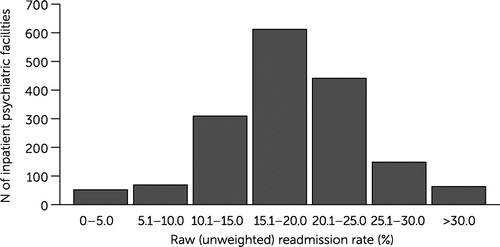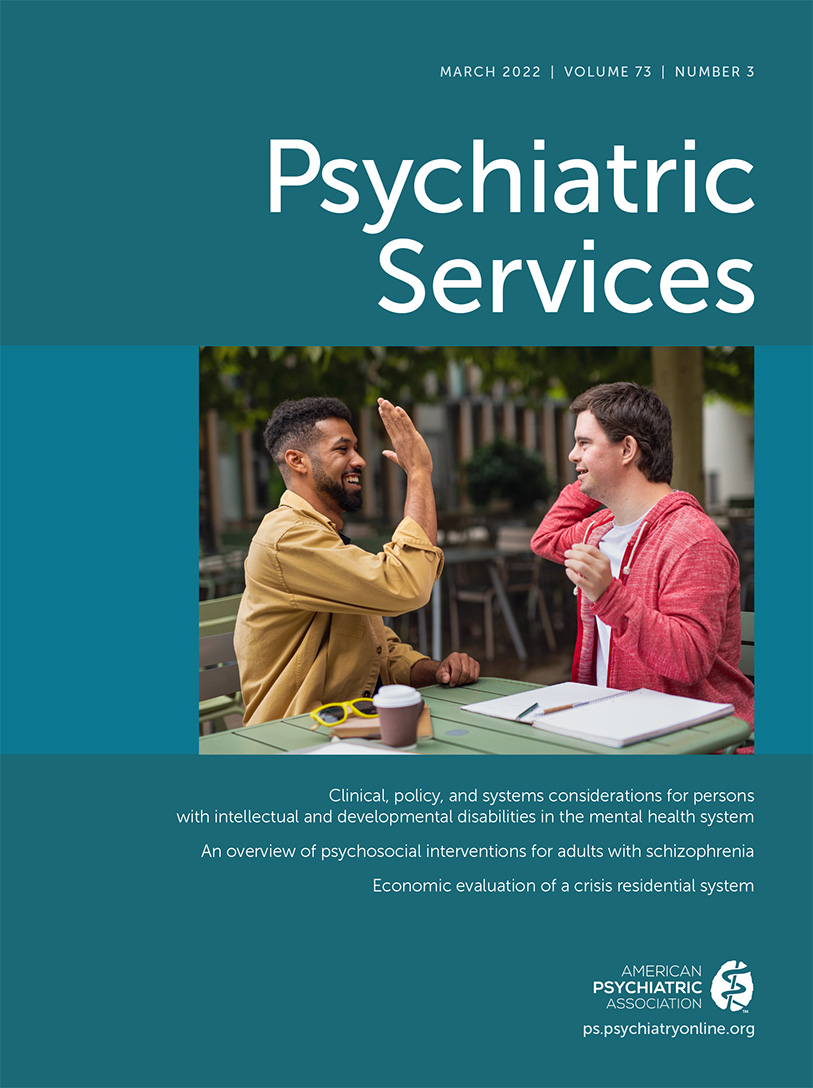Psychiatric Facility Readmissions of Medicare Inpatients
Since 2012, approximately 1,600 facilities paid under Medicare’s Inpatient Psychiatric Facility Prospective Payment System have participated annually in a quality measure reporting program. Of these inpatient psychiatric facilities (IPFs), about two-thirds are hospital psychiatric units, and one-third are freestanding private and public psychiatric hospitals. Results of IPF quality measures are published yearly (https://data.cms.gov/provider-data/topics/hospitals), including for “30-Day All-Cause Unplanned Readmission Following Psychiatric Hospitalization in an IPF,” which provides an estimated facility-level, risk-standardized 30-day readmission rate for Medicare patients.
A recent study examined the association of the readmission measure with IPF measures of care coordination (1). However, that study analyzed risk-standardized rates, which do not provide information about actual (i.e., raw) readmission rates or the range of actual facility performance. Figure 1 provides actual readmission rates for 1,694 IPFs in 2016–2018 in the United States. Overall, the mean actual IPF readmission rate was 18.5% (range 0%–50%).

FIGURE 1. Raw 30-day all-cause rates of readmission to inpatient psychiatric facilities, 2016–2018
These results suggest several problems with the quality of care in IPFs. First, when compared with Medicare’s equivalent all-cause readmission measure in the inpatient quality reporting program, the mean actual IPF readmission rate of 18.5% was 26% greater than that for general hospitals (14.4%) (2). Second, the rates for some IPFs were particularly high. Finally, in contrast to general hospitals, where most patients are readmitted for conditions different from those causing the original hospitalization, most IPF readmissions after psychiatric hospitalization are again for psychiatric conditions (3). This finding is especially concerning because it suggests that unlike for general hospital readmissions, IPF readmission rates will not improve through greater attention to comorbid conditions during the inpatient stay; rather, they will improve with better inpatient psychiatric treatment and follow-up after discharge.
1 : Measures of care coordination at inpatient psychiatric facilities and the Medicare 30-day all-cause readmission rate. Psychiatr Serv 2020; 71:1031–1038Link, Google Scholar
2 Yale New Haven Health Services Corp: 2020 Hospital-Wide Readmission Measure Updates and Specifications Report, Version 9.0. Baltimore, Centers for Medicare and Medicaid Services, Center for Outcomes Research and Evaluation, 2020. https://qualitynet.cms.gov/files/609524402be51c001edf6195?filename=2020_Readmission_Meas_Updates_Specs.zip [2020_HWR_MU_SpecsReport.pdf]Google Scholar
3 : Hospital Readmissions Involving Psychiatric Disorders, 2012. HCUP Statistical Brief 189. Rockville, MD,



